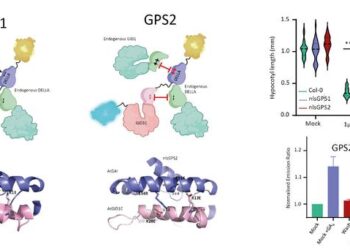Media Contact:
Dr. Alissa Nolden, Chair – Public Information & Affairs Committee, anolden@umass.edu
Media Contact:
Dr. Alissa Nolden, Chair – Public Information & Affairs Committee, anolden@umass.edu
Bonita Springs, FL— The Association for Chemoreception Sciences (AChemS) stands as a premier organization dedicated to advancing the understanding of chemosensory systems. With a rich history spanning over four decades, AChemS has played a pivotal role in fostering interdisciplinary research and collaboration in the fields of taste, smell, and chemical senses. AChemS provides a platform for scientists, clinicians, and industry members from diverse backgrounds to exchange ideas, present cutting-edge research findings, and address pressing challenges in chemoreception through its annual meetings, publications, and networking opportunities. The 46th annual AChemS conference is expected to provide attendees with the newest findings unraveling the complexities of chemosensory perception, with far-reaching implications for human health, behavior, and quality of life.
The upcoming 46th annual AChemS conference is poised to convene 338 esteemed scientists, clinicians, and industry members next week. Renowned as the nation’s foremost platform for exploring taste, smell, and chemesthesis research, the event will feature an impressive lineup of 62 presentations. Notably, attendees eagerly anticipate the engaging poster sessions, with morning (8-10am) and evening (9-11pm) sessions on Thursday and Friday and a final poster session held Saturday morning (8-10am). A total of 184 posters have been accepted to present spanning diverse topics, including taste transduction, olfactory dysfunction, social behavior, and taste preferences. The conference promises a comprehensive exploration of cutting-edge research. For a list of highlighted abstracts to be presented, visit the provided [LINK].
Opening remarks and a keynote presentation, delivered by Dr. Daniel Kronaure from Rockefeller University on “Pheromone Communication in Ants,” kick off the meeting on Wednesday, April 17th, at 6 pm. A few highlights of the program, which runs through Saturday, April 20th, include fascinating symposia on “Chemosensory mechanisms that drive innate behavior, “ “Chemosensory perception and eating behavior: from inborn variation through the gut-brain circuit to COVID-19,” and “Olfaction and Taste: biomarkers for health.” Other events that are sure to not be missed are the Polak Award Lectures, awarded to six young investigators, and the President’s Symposium titled: “Regenerative medicine and the senses”.
Please visit AChemS (https://www.achems.org) for general and membership information as well as the full program of conference events (https://achems.org/2024/program.php).
- Lower Perception of Odors Intensity in Late Evening May Contribute to Poor Diet Intake in Evening Sleep Phenotypes
Contact: Dr. Surabhi Bhutani at sbhutani@sdsu.edu - Engineering Insect Olfactory Receptors to Detect Disease Associated Chemicals
We utilize a model insect olfactory receptor to study ligand selectivity and ligand gated activation to engineer receptors towards chemicals of interest, especially those associated with disease.
Abstract Title: Engineering Insect Odorant Receptors as a Detection Mechanism for Disease Associated Volatiles
Contact: Dr. Brown at rjb67@duke.edu - Impaired Iron Gluconate Identification in SARS-CoV-2 IgG+ Subjects and Associated Lower Transcript Levels of The Human Foliate Papillae Tongue Transcriptome
Contact: Dr. Veronika Somoza at v.somoza.leibniz-lsb@tum.de - Fragrances can affect expression of genes by altering epigenetics
Certain fragrances inhibit HDAC enzymes, altering chromatin and gene expression in cells, potentially slowing neuroblastoma cancer and Huntington’s disease progression in a model system.
Abstract Title: Flavors and fragrances can modulate gene expression via epigenetic changes
Contact: Dr. Anandasankar Rey at anand.ray@ucr.edu - Screening for Alzheimer’s Disease at Home Without Going to the Doctor
The AROMHA Brain Health Smell Test is an at-home, non-invasive, and easy-to-use test that can be done on one’s phone, tablet, or computer and shows promise in detecting people at risk for Alzheimer’s Disease.
Abstract Title: Digital Accessible Remote Olfactory Mediated Health Assessments for Preclinical AD
Contact: Dr. Mark Albers at albers.mark@mgh.harvard.edu - Utilizing Smell Tests to Improve Mild Cognitive Impairment (MCI) Detection
Results show that memory testing paired with smell testing improve identification of MCI in individuals, expanding possible avenues of screening for memory loss and Alzheimer’s.
Abstract Title: Enhancing Preclinical Alzheimer Cognitive Composite (PACC) via Olfactory Testing
Contact: Yang at qyang@pennstatehealth.psu.edu - The Influence of Migration on Sweet Liking Across Ancestry Groups
Migrants may like sweet taste less compared to ancestry-matched individuals born in the US. This could be due to differences in sweetness exposure during childhood.
Abstract Title: Determinants of Sweet Taste Liking in Individuals of African and East Asian Ancestry Groups Living in the United States
Contact: Lauren Zami at laurenzami@gmail.com
Discover more from Science
Subscribe to get the latest posts sent to your email.



